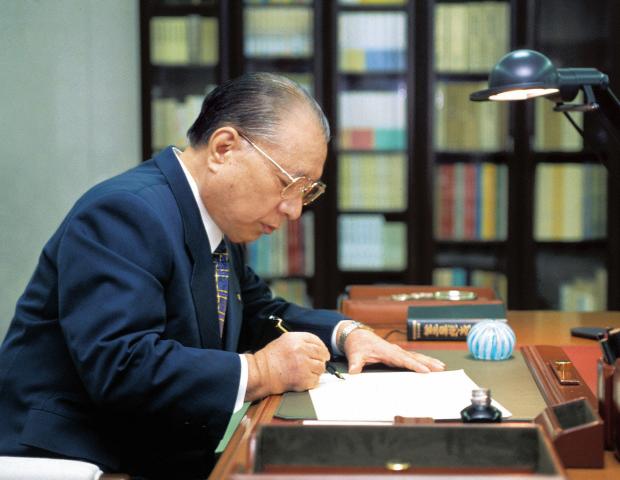Ten Key Aspects of Ikeda’s Nuclear Disarmament Ethos
Daisaku Ikeda’s annual peace proposals consistently address the urgent matter of nuclear weapons disarmament. Additionally, in 2009, he issued a full proposal devoted solely to abolition. In 2018, the Center’s Mitch Bogen analyzed these proposals for core themes, and developed this framework for understanding and implementing Mr. Ikeda’s multi-faceted approach to nuclear disarmament. The points beneath each of the ten aspects offer examples of Ikeda’s recommended domains and modes of engagement. In all cases, for Ikeda, there is an emphasis on dialogue and alternative thinking.
The Ten Aspects
1. Emphasize the solidarity and actions of ordinary citizens
a. Engage in civil society actions
b. Practice personal dialoguing
c. Develop educational projects
2. Question assumptions and justifications about nuclear weapons use and inevitability
a. Engage in public discourse
b. Take targeted political action
c. Practice critical thinking in education settings
3. Create a shared vision
a. Practice dialogue at all levels, from personal to international
b. Utilize and maximize NGO networks
c. Think creatively about commonalities, e.g., joining realist and pacifist positions
4. Develop mutual trust
a. Draw upon religious traditions
b. Emphasize principles such as dignity, empathy, and interdependence
5. Proceed with determination and confidence
a. Build on history of nuclear abolition movement and learn from predecessors
b. Consciously create a non-defeatist narrative
c. Support civil society initiatives
6. Work for transformation of consciousness and develop new habits
a. Promote the bodhisattva mindset, religious and secular
b. Emphasize holistic education
7. Stress “human security” and “humanitarian competition”
a. Practice alternative thinking to move beyond traditional liberal-conservative dichotomy
8. Keep focus on the absolute moral and legal impermissibility of nuclear weapons use, with goal of complete abolition
a. Draw on both religious and humanist traditions to make case
b. Frame debates in these terms
9. Establish clear and achievable action steps toward ultimate goal
a. Adopt or adapt the pragmatic ethos of Dewey and Makiguchi and others
b. Take targeted political action
10. Mobilize the passion of youth
a. Promote creative civil society actions
b. Conduct education about and for disarmament
